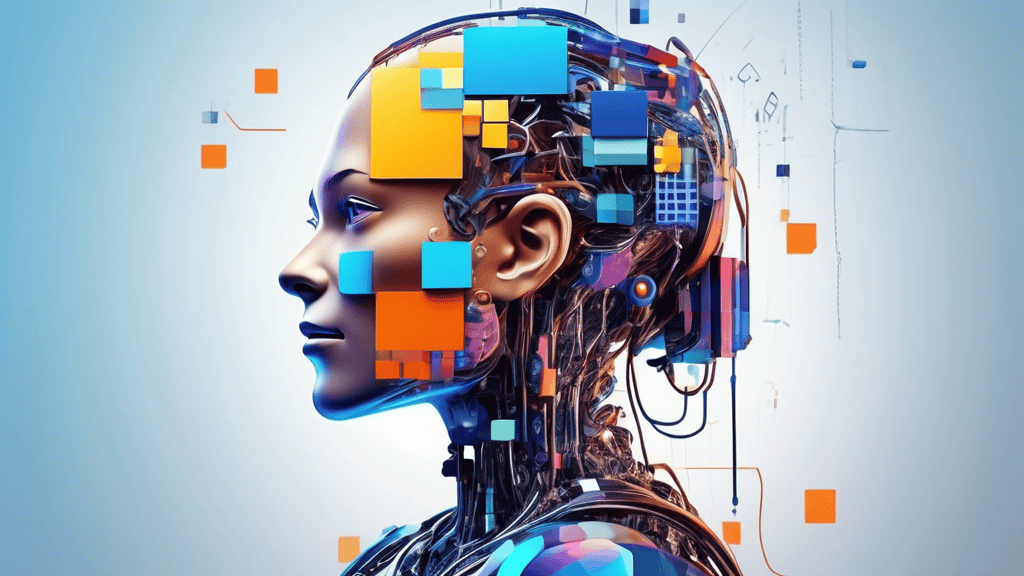Artificial Intelligence is transforming how we work, and Microsoft is at the forefront of this evolution with its innovative ai tools aimed at enhancing productivity. These tools not only streamline processes but also empower employees to focus on what truly matters, driving better results for organizations. Microsoft’s commitment to AI development reflects its understanding of the need for intelligent solutions in today’s fast-paced business environment. By integrating advanced AI capabilities into popular platforms like Microsoft 365 and Azure, Microsoft provides users with powerful resources designed to elevate workplace efficiency and collaboration. Exploring these microsoft ai tools reveals how they can significantly contribute to improving productivity across various industries.
## Introduction to Microsoft AI Tools
Artificial intelligence has become a crucial component in enhancing productivity in various sectors. As organizations aim to streamline operations and make data-driven decisions, the role of ai tools becomes evidently important. Microsoft is at the forefront of this transformation, providing a suite of ai tools that empower users to work smarter and more efficiently.
Microsoft’s commitment to AI development is evident in its continuous investment in research and advancements. The company recognizes that integrating AI into its existing platforms can significantly elevate user experience and productivity. By embedding intelligence into everyday tasks, Microsoft aims to redefine how individuals and teams operate.
With a focus on practicality and usability, Microsoft ai tools offer an array of functionalities designed to meet the needs of both novice and experienced users. These tools are not just about automation; they also support creative problem-solving and decision-making processes. Utilizing these capabilities can lead to substantial productivity gains across various work environments.
Let’s take a closer look at some of the standout features of Microsoft ai tools that contribute to enhanced productivity.

Key Features of Microsoft AI Tools
Microsoft ai tools offer a range of features designed to significantly enhance productivity in various workplace environments. Their standout tools, such as Copilot in Microsoft 365 and Azure AI, exemplify the integration of artificial intelligence into everyday tasks, streamlining processes and fostering greater collaboration among teams.
Copilot in Microsoft 365
Copilot is revolutionizing how users interact with Microsoft Office applications like Word, Excel, and PowerPoint. This intelligent assistant harnesses the power of AI to assist users in creating content, generating data insights, and delivering presentations more efficiently.
– Content Generation: Copilot can draft text based on prompts, allowing users to expand ideas rapidly. This feature is particularly beneficial for writers and marketers seeking to create compelling content quickly.
– Data Analysis: In Excel, Copilot helps users analyze data trends and create visual representations, making it easier to present insights in a digestible format.
– Presentation Aid: Copilot can suggest slide layouts and content for PowerPoint presentations, saving time during the design process and ensuring consistency across slides.
These capabilities enable professionals to focus more on high-level tasks while automating repetitive elements, significantly improving productivity.
Azure AI
Azure AI serves as a robust platform for developers and businesses looking to incorporate AI into their applications. This tool offers a multitude of services that can enhance productivity and optimize operations.
– Custom Model Development: With Azure AI, organizations can build and deploy custom AI models tailored to their specific needs. This flexibility allows businesses to address unique challenges effectively.
– Natural Language Processing (NLP): Azure AI’s NLP capabilities empower companies to develop chatbots and virtual assistants, enhancing customer service and operational efficiency.
– Machine Learning: Azure provides machine learning services that can analyze vast datasets to extract actionable insights, improving decision-making processes and operational strategies.
These features of Azure AI not only boost workplace efficiency but also encourage innovation by giving organizations the tools they need to enhance their productivity.
Improving Workplace Efficiency and Collaboration
Microsoft ai tools bring about significant improvements in workplace efficiency and collaboration. By automating tasks, these tools allow employees to allocate their time to more strategic initiatives.
– Streamlined Communication: Seamless integration of ai tools within platforms like Microsoft Teams enables real-time collaboration. Whether through AI-driven meeting summaries or automated task management, teams can work together more effectively.
– Task Management: Tools like Planner and To Do leverage AI to prioritize tasks and send reminders, helping teams stay organized and focused on objectives.
– Data-Driven Decisions: With advanced analytics and insights provided by Microsoft AI, organizations can make informed decisions based on real-time data rather than relying on intuition.
Incorporating these features leads to a more productive work environment where employees feel empowered and supported in their daily tasks.
User-Friendly Interfaces
One of the standout features of Microsoft ai tools is their user-friendly design. Microsoft has prioritized intuitive usability, making these advanced technologies accessible to users of varying technical backgrounds.
– Simple Navigation: Users can quickly learn to navigate tools like Copilot and Azure AI, reducing the time required for training and onboarding.
– Integrated within Existing Platforms: Since these tools are embedded in familiar Microsoft products, users don’t need to adjust to entirely new interfaces, which minimizes disruption.
This thoughtful design ensures that employees can adopt ai tools without extensive retraining, speeding up implementation and maximizing productivity gains.
Scalability
Microsoft ai tools offer scalability, allowing businesses to adapt their AI usage to meet changing demands. This flexibility is crucial in today’s fast-paced work environment.
– Catering to Different Business Sizes: From small startups to large enterprises, Microsoft ai tools can scale to fit the size and complexity of an organization’s operations.
– Expanding Toolset: As businesses grow, they can incorporate additional functionalities within the Microsoft ecosystem, ensuring a cohesive integration of AI into their workflows.
This extensibility allows organizations to evolve their usage of ai tools as their needs change, providing long-term support for productivity enhancement.
Security and Compliance
A critical feature of Microsoft ai tools is the strong focus on security and compliance. As organizations leverage AI technology, concerns about data security and regulatory compliance become paramount.
– Data Protection: Microsoft employs robust data encryption and security measures, safeguarding sensitive information processed through AI tools.
– Compliance with Regulations: Microsoft is committed to helping businesses comply with various data protection regulations, allowing organizations to adopt AI confidently.
These security features ensure that productivity gains achieved through Microsoft ai tools do not come at the expense of data safety.
Conclusion
In summary, key features of Microsoft ai tools such as Copilot in Microsoft 365 and Azure AI position them as essential assets for enhancing workplace productivity. Their capabilities in automation, real-time collaboration, user-friendly interfaces, scalability, and strong security protocols make them indispensable for modern organizations looking to optimize their operations. Organizations that harness these tools will likely experience significant improvements in efficiency and productivity overall.

## Real-World Applications and Success Stories
Businesses worldwide are increasingly tapping into Microsoft ai tools to supercharge their productivity. By showcasing real-world applications and success stories, I’ll illustrate how various organizations have harnessed these innovative solutions for tangible benefits.
### Case Studies of Businesses Leveraging Microsoft ai tools for Productivity
1. **Retail Sector Innovation**
A leading retail company adopted Microsoft Copilot to streamline its customer service response. By integrating this AI tool, the team reduced response times by 40 percent and enhanced their customer satisfaction ratings. Agents utilized Copilot’s predictive capabilities to anticipate customer needs and provide faster resolutions.
2. **Healthcare Efficiency**
A healthcare provider implemented Azure AI to manage patient data and optimize appointment scheduling. By automating these processes, they cut down administrative tasks by 30 percent, allowing healthcare professionals to focus on patient care. The AI also provided data insights, helping the provider make informed decisions about resource allocation.
3. **Manufacturing Automation**
A major manufacturer integrated Microsoft ai tools into their supply chain management. By utilizing AI-driven analytics, they improved inventory forecasting, minimizing stock shortages and overstock situations. This led to a 25 percent reduction in operational costs within the first year.
4. **Education Transformation**
An educational institution has started to use Microsoft AI for personalized learning experiences. By analyzing students’ performance data, ai tools provide tailored recommendations and resources, improving student outcomes. The institution noted a 20 percent increase in student engagement as a result.
5. **Finance Sector Precision**
A financial services firm adopted Azure AI to enhance its fraud detection mechanisms. The AI’s machine learning capabilities identified patterns in transaction data that human analysts could miss. Consequently, the firm achieved a 50 percent reduction in fraud-related losses.
### Best Practices for Integrating Microsoft ai tools into Daily Operations
Successfully integrating Microsoft ai tools into daily operations requires thoughtful planning and execution. Here are some best practices that can help ensure a smooth transition:
– **Identify Clear Objectives**
Pinpoint specific areas where AI can add value. Whether it’s improving customer service, enhancing decision-making, or automating repetitive tasks, having clear goals sets the stage for effective implementation.
– **Engage Stakeholders Early**
Involve team members from various departments in the decision-making process. Their insights can help tailor the tools to meet specific needs and foster a culture of buy-in and acceptance.
– **Invest in Training**
Equip your team with the necessary skills to leverage these tools effectively. Provide training sessions and resources to maximize the benefits of Microsoft AI tools. An informed team is more likely to use the technology to its full potential.
– **Start Small and Scale**
Consider piloting Microsoft ai tools with a small team or project before scaling up. This approach allows you to evaluate performance and make necessary adjustments without overwhelming the entire organization.
– **Monitor and Evaluate Performance**
Continuously assess the impact of the ai tools on productivity. Use metrics to track progress against your objectives and adjust your strategies accordingly. This feedback loop helps in fine-tuning operations for maximum efficiency.
– **Foster a Culture of Innovation**
Encourage creative thinking and experimentation. Empower your team to explore new ways of incorporating Microsoft ai tools into their workflows. A culture that embraces innovation is crucial for sustained productivity improvements.
Utilizing Microsoft ai tools offers immense potential for businesses looking to enhance productivity. The success stories across various sectors illustrate their versatility and effectiveness. By following the best practices for integration, you can ensure that your organization benefits fully from these advanced technologies.
Microsoft’s innovative ai tools are transforming how individuals and businesses approach productivity. By emphasizing efficiency and collaboration, tools like Copilot in Microsoft 365 and Azure AI exemplify how technology can streamline daily tasks and enhance decision-making processes. The real-world applications highlighted in various case studies demonstrate tangible benefits, showcasing how companies have successfully integrated these tools into their operations.
Adopting Microsoft ai tools not only simplifies workflows but also fosters a culture of collaboration, enabling teams to accomplish more in less time. As you consider implementing these technologies, focus on best practices that align with your organization’s needs, ensuring a smooth transition and maximizing the advantages of AI.
Overall, Microsoft’s ongoing commitment to AI development will likely continue to deliver innovative solutions, further pushing the boundaries of productivity. Staying updated on these advancements is essential for anyone looking to leverage technology for a more efficient future.
